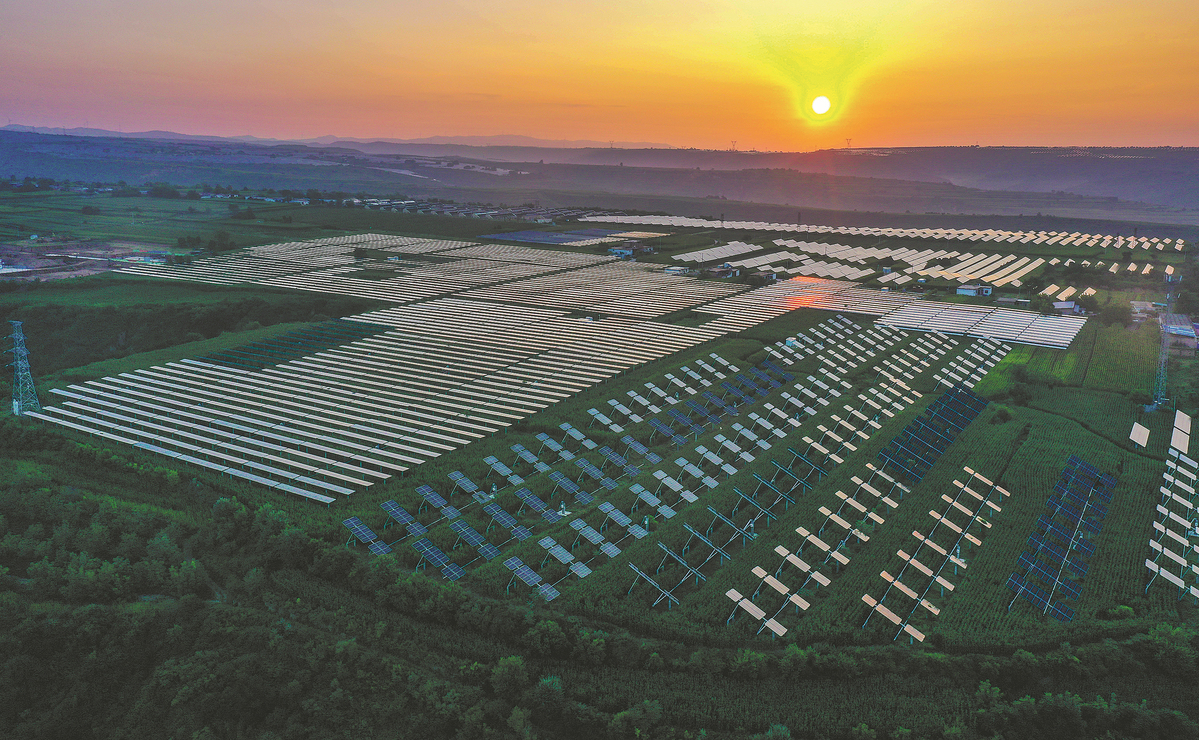'New three' paves way for high-quality growth
Surge in solar, battery, NEV exports last year key to economy
By OUYANG SHIJIA | CHINA DAILY | Updated: 2024-02-21 09:27

China's pivot toward high-tech green industries as key growth drivers is gaining momentum, with experts predicting that the "new three" — photovoltaics, lithium-ion batteries and new energy vehicles — will play a pivotal role in shaping the country's economic landscape.
According to analysts, the rapid advancement of these sectors is poised to inject a renewed sense of confidence and dynamism into the world's second-largest economy. These industries are not only expected to drive growth, but also foster development of new productive forces, thus underpinning a shift toward high-quality economic development.
Louise Loo, lead economist at British think tank Oxford Economics, highlighted the strategic importance of the "new three" in driving high-quality growth, contrasting them with the more traditional "old three" industries — furniture, clothing and home appliances.
Official data reflect the marked shift with exports of the high-tech "new three" experiencing substantial growth. Exports of the "new three" of electric vehicles, lithiumion batteries and solar cells amounted to 1.06 trillion yuan ($147 billion) in 2023, registering a year-on-year increase of 29.9 percent, said the General Administration of Customs.
Loo attributed the rapid growth in the three segments to favorable industrial policies, fiscal resource allocation, and strong support for these industries. However, she cautioned that despite their growth, these sectors may not fully offset the challenges posed by other macroeconomic headwinds, particularly in the property sector, which may continue to correct for at least the next two years.
"We estimate that these new industries and their related sectors upstream will make up around 11 percent of the country's GDP," she said. "Compared to the 20 to 25 percent GDP share of housing … the growth in these 'new three' industries looks quite insufficient to fully offset some of the powerful drags that are coming from housing."
Meanwhile, even though the three sectors still make up quite a small proportion of the country's GDP, Loo said she expects longer-term demand fundamentals to remain more or less intact, and that overcapacity concerns are really not as systemic as reported.
"Over the longer term, because of the productivity gains of these three new industries and the increasing economic share that they will enjoy in the economy, we expect that there will be a moderate pickup in productivity because of the rise and sustenance of these new sectors," she said.
"By 2027, the group of these new industries will eventually offset the drag from the more traditional sectors, such as construction and property. So this uptick in productivity over the longer term will also partially offset the incoming drags that we will see from a shrinking workforce, as well as diminishing capital returns that we see quite clearly in China."
Looking forward, she believes that these industries will become an alternative growth driver for China, especially once the pain from the property drag plays out over the next few years.
Loo's views were echoed by Bloomberg Economics' chief economist Tom Orlik, who said it may take two more years of correction in the property sector, and China will have a real estate sector that is smaller as a share of the economy at the end of the process.
"It's more sustainable in terms of its future trajectory," Orlik said. "It also means that China will have less productive resources, capital and workers focused on the real estate sector. So there can be more focus of productive resources on areas like EVs where there are very strong growth prospects."
He said the booming emerging fields — such as EVs and sustainable energy — will offer continued growth opportunities for the Chinese economy.
Looking ahead, Shi Jianhua, deputy secretary-general of EV think tank China EV100, said the three new sectors will serve as sturdy engines driving China's future economic growth, and more efforts should be made to promote industrial upgrading and transformation as well as boost technological innovation.
ouyangshijia@chinadaily.com.cn
























